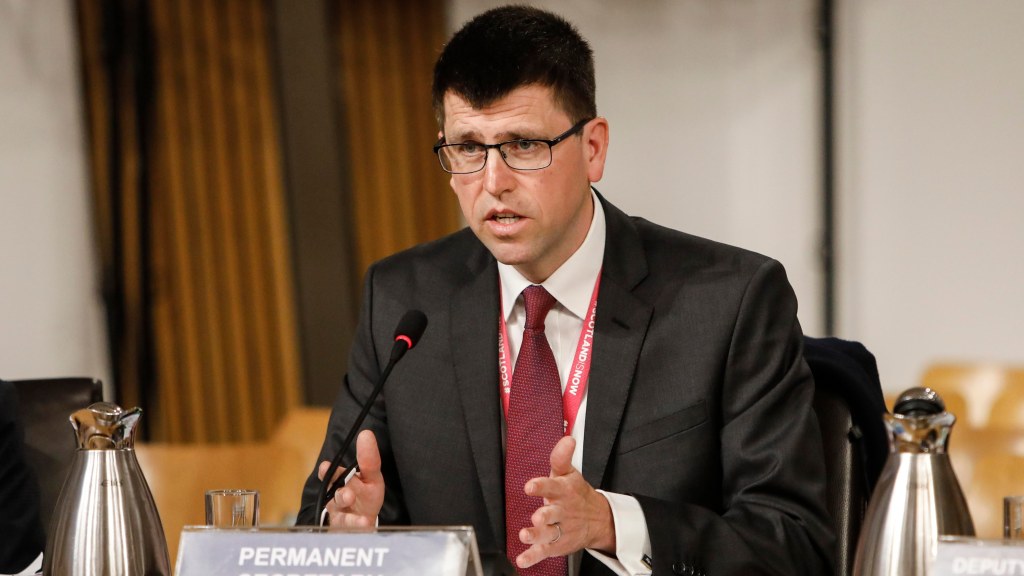Concerns Grow Over the US Economy’s Treatment as a Wall Street Asset
Executives trying to grasp President Trump’s economic strategy are referencing his 1987 publication, The Art of The Deal. Alternatively, they might consider reading Barbarians at The Gate, a 1989 bestseller that detailed a pivotal acquisition battle involving RJR Nabisco.
Frederick Ross Johnson, who led RJR Nabisco—a major player in both the food and tobacco industries—was portrayed in the book as part of a cohort of deal-focused executives who emerged during the 1970s and 1980s. The authors, Bryan Burrough and John Helyar, noted, “They claimed their purpose was to benefit investors rather than uphold traditional corporate values, often enriching themselves in the process.”
Johnson firmly believed in making bold, unplanned moves as the key to achieving ultimate success.
During his tenure, Johnson restructured RJR Nabisco repeatedly, resulting in job cuts and significant changes to the company culture. His reputation for extravagance included using corporate jets for personal travel and acquiring country club memberships. When faced with scrutiny over his expenses, he succeeded in appointing friends to other executive positions.
Disappointed by RJR Nabisco’s stagnant stock performance, Johnson proposed a leveraged buyout that involved collaborating with top managers to take control of the company. His plan included selling off certain food brands and managing the remainder privately. However, controversy arose when it was revealed that Johnson and a select group of senior executives could potentially reap over $100 million from this venture.
The bidding war for RJR Nabisco escalated into a significant debt-fueled showdown, ultimately leading to a $25 billion leveraged buyout by Kohlberg Kravis Roberts & Company (KKR) in 1988, the largest in corporate history at that time. Despite the failure of his group’s bid, Johnson secured a golden parachute estimated between $23 million and $50 million.
President Trump’s approach to managing the US during his current term has drawn parallels to the strategies of 1980s Wall Street, with the nation being treated akin to a conglomerate in a leveraged buyout scenario.
Utilizing the Department of Government Efficiency, Trump has aimed to cut federal costs and eliminate departments viewed as inefficient or ideologically misaligned.
In February, he tasked officials with outlining a sovereign wealth fund plan, indicating it might be supported by monetizing public assets.
Engaging in aggressive deal-making, Trump has also threatened to impose higher tariffs on international trading partners to enhance government revenue.
Conversely, Wall Street is apprehensive that Trump’s expansive tax-cut strategy could further increase national debt, already approaching 100 percent of GDP, potentially adding $2.4 trillion over the next decade.
The White House maintains that Trump’s approach will stimulate economic growth, elevate job creation, and improve real household incomes.
Moody’s has downgraded the US credit rating, highlighting concerns over rising debt levels. Critics warn that if unchecked, these debt-related anxieties could precipitate a bond market crisis. Additionally, economists predict a higher probability of a US recession due to the ongoing trade war initiated by Trump.
While the unpredictability of Trump’s policies heightens uncertainty for the US economy, his family appears well-positioned for resilience.
Since the inception of his re-election campaign, Trump’s net worth has reportedly exceeded $5.4 billion, as per Bloomberg. During this period, the Trump Organisation has been associated with over $10 billion in real estate ventures.
Furthermore, the Trump family is anticipated to gain significantly from promised deregulation in the cryptocurrency sector. World Liberty Financial (WLF), affiliated with the Trump family, introduced a cryptocurrency called $WLFI, which had achieved $2.7 million in investments by October, a figure that surged following Trump’s election win last year.
The president is pressing the Federal Reserve to lower interest rates, even amidst persistently high inflation levels, a tactic that could elevate the value of his family’s real estate and cryptocurrency investments.
Trump’s agenda poses a challenge to America’s economic exceptionalism, but it appears there will be a financial safety net for Trump Inc.
Louisa Clarence-Smith is the US business editor.




Post Comment